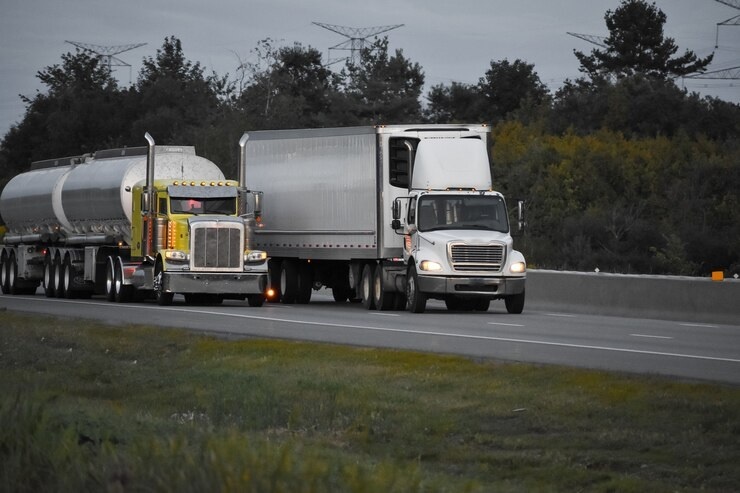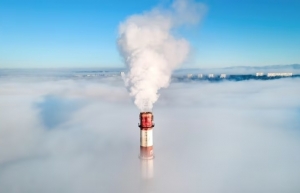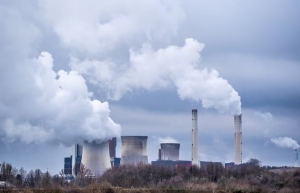First cross-border transport of CO2 expected in 2025: Yara
 |
| First cross-border transport of CO2 expected in 2025: Yara, illustration photo/ Source: freepik.com |
The agreement with Northern Lights, a joint venture grouping oil giants Equinor of Norway, Anglo-Dutch Shell and TotalEnergies of France, will enable the "first cross-border transportation and storage of CO2," Yara said in a statement.
Carbon capture and storage, a solution aimed at helping halt climate change, involves capturing carbon dioxide emissions at factory smokestacks and burying them underground in geological reservoirs.
The Yara contract concerns CO2 from ammonia production at its Sluiskil factory in the southwestern Netherlands, which already captures a large part of its carbon dioxide for industrial use.
After being liquified, the CO2 will be transported by boat to Oygarden, where a terminal is under construction for Northern Lights on Norway's coast, then injected into the North Sea seabed at a depth of around 2.6 kilometres (1.6 miles) for permanent storage.
"This is a milestone for decarbonising hard-to-abate industry in Europe," Yara chief executive Svein Tore Holsether said in a statement.
The contract, announced in August 2022 but only formally signed on Monday, will come into force in 2025, and as of 2026 will enable the annual storage of 800,000 tonnes of CO2 produced at Sluiskil.
Northern Lights, which will be able to begin receiving CO2 next year, will have an initial capacity of 1.5 million tonnes of CO2 before being ramped up to five million tonnes in a second phase.
Danish energy group Orsted and Germany's Heidelberg are also expected to ship CO2 generated at a biofuel plant and cement factory respectively to Northern Lights in 2025 or 2026.
CCS technology is complex and costly, but has been advocated by the UN's Intergovernmental Panel on Climate Change (IPCC) and the International Energy Agency as essential to addressing global warming.
Some environmentalists have however expressed concern about the risk of leaks and warned the technology could provide justification for the continued use of fossil fuels and divert attention away from investments needed in renewable energies.
Several dozen CCS projects exist worldwide.
 | Energy sector CO2 emissions hit record in 2022: study Global energy sector carbon dioxide emissions hit a record peak last year counter to Paris commitments, a key study warned Monday, and highlighted the "worst ever" impacts of climate change. |
 | COP28 turns attention to potent methane emissions Climate talks often revolve around reducing the most dangerous greenhouse gas CO2. |
What the stars mean:
★ Poor ★ ★ Promising ★★★ Good ★★★★ Very good ★★★★★ Exceptional
 Tag:
Tag:
Related Contents
Latest News
More News
- $100 million initiative launched to protect forests and boost rural incomes (January 30, 2026 | 15:18)
- Trung Nam-Sideros River consortium wins bid for LNG venture (January 30, 2026 | 11:16)
- Vietnam moves towards market-based fuel management with E10 rollout (January 30, 2026 | 11:10)
- Envision Energy, REE Group partner on 128MW wind projects (January 30, 2026 | 10:58)
- Vingroup consults on carbon credits for electric vehicle charging network (January 28, 2026 | 11:04)
- Bac Ai Pumped Storage Hydropower Plant to enter peak construction phase (January 27, 2026 | 08:00)
- ASEAN could scale up sustainable aviation fuel by 2050 (January 24, 2026 | 10:19)
- 64,000 hectares of sea allocated for offshore wind surveys (January 22, 2026 | 20:23)
- EVN secures financing for Quang Trach II LNG power plant (January 17, 2026 | 15:55)
- PC1 teams up with DENZAI on regional wind projects (January 16, 2026 | 21:18)






















 Mobile Version
Mobile Version